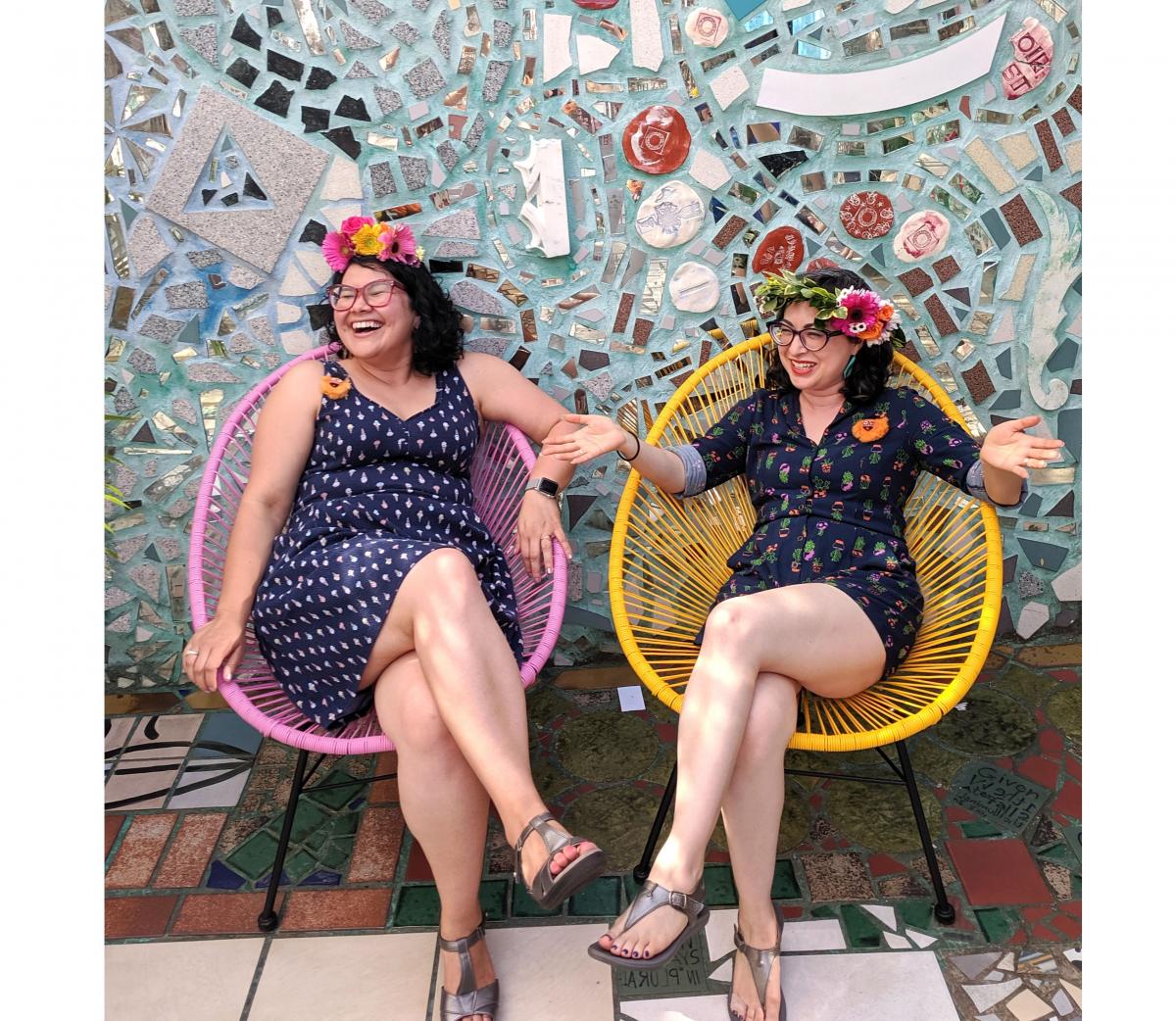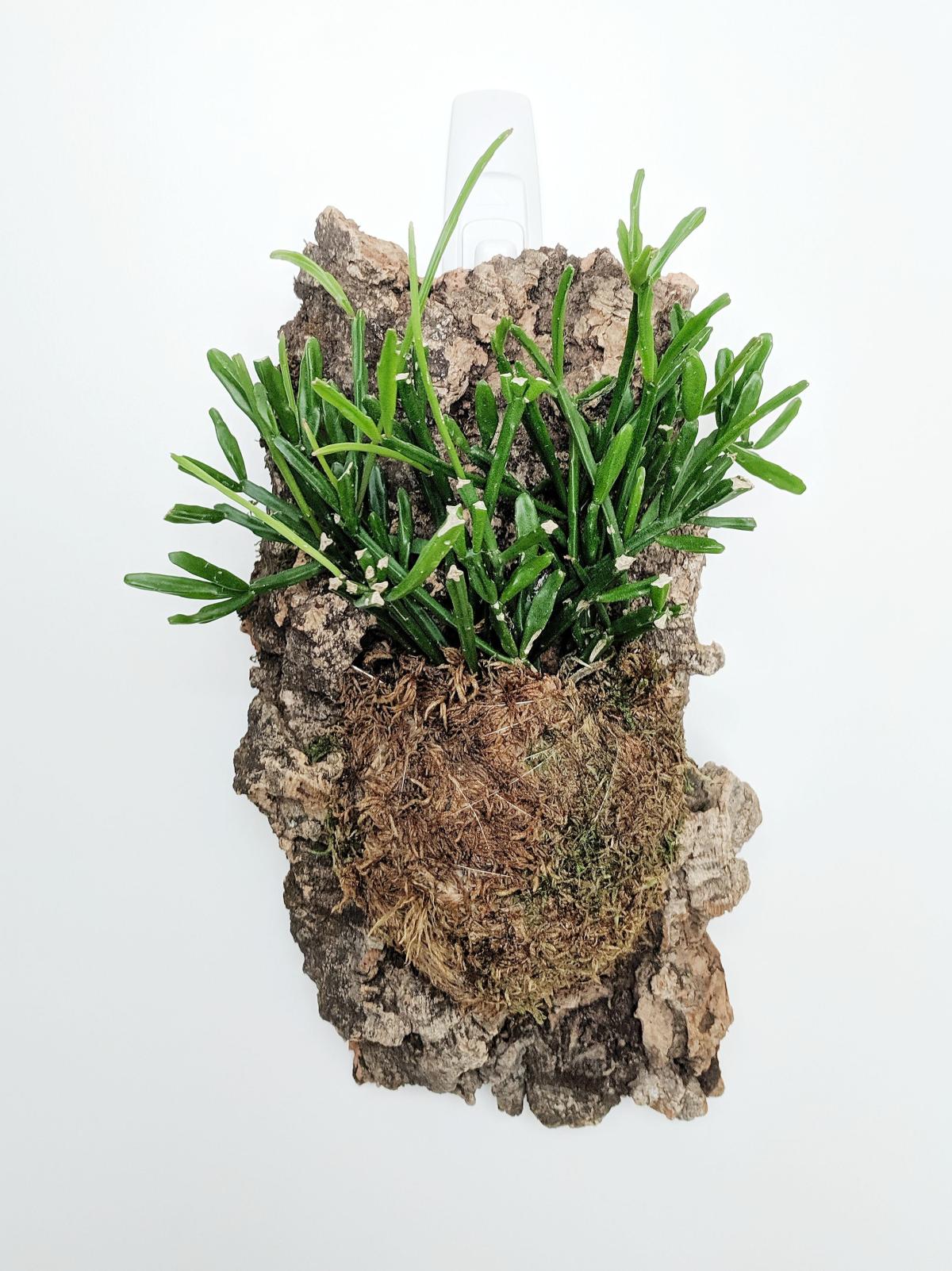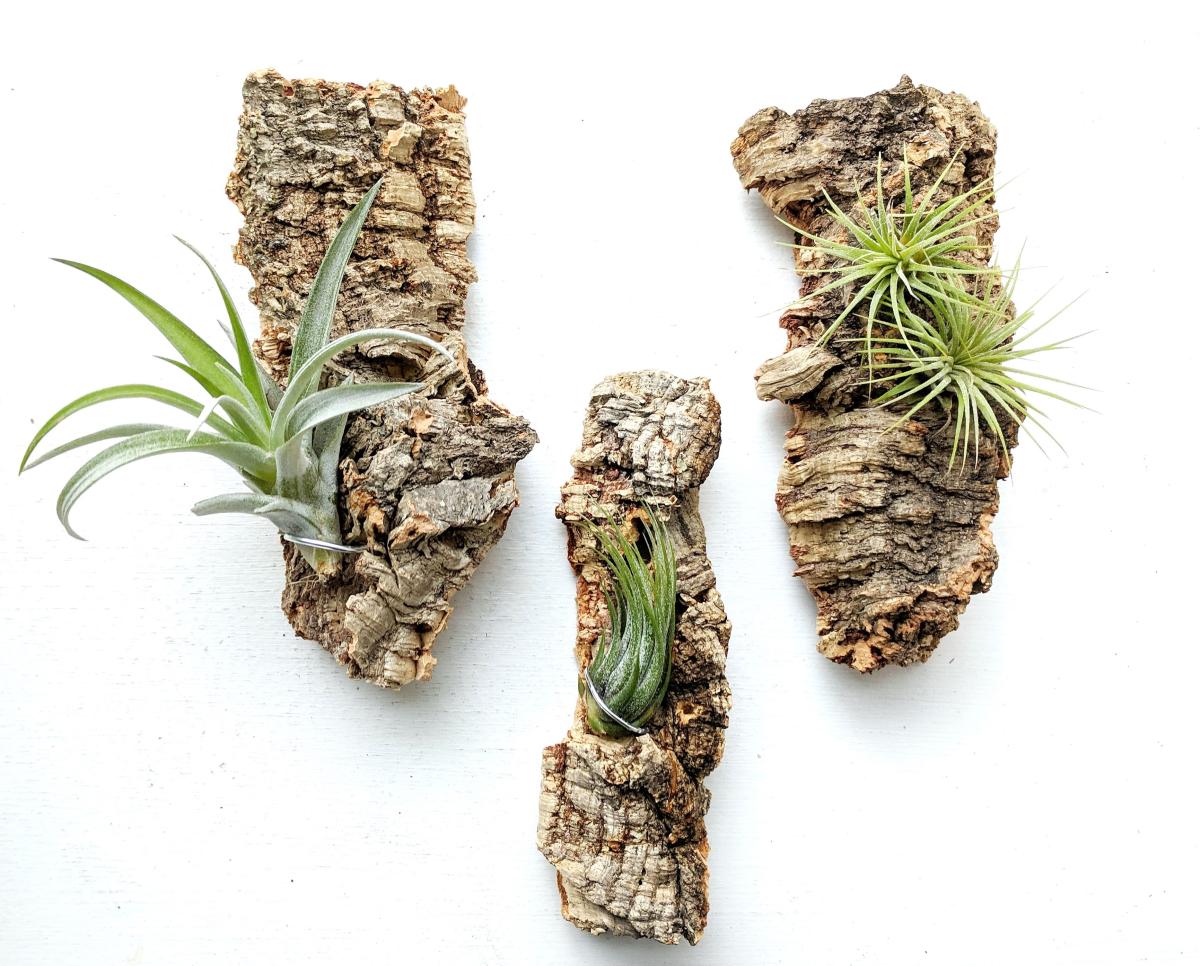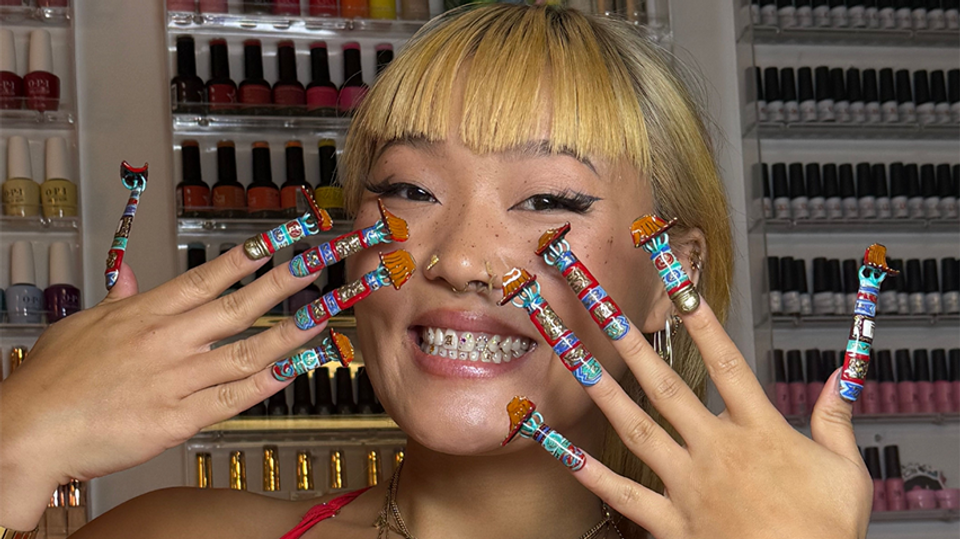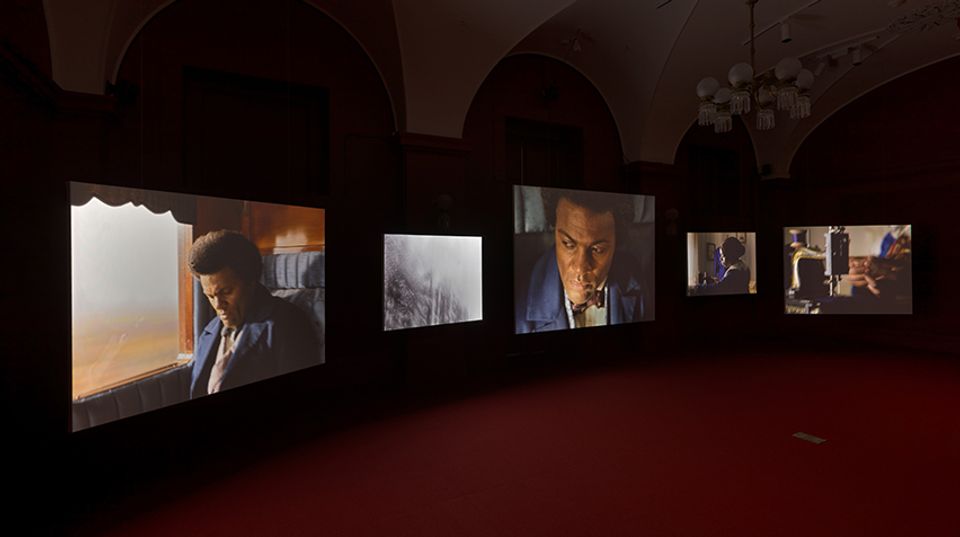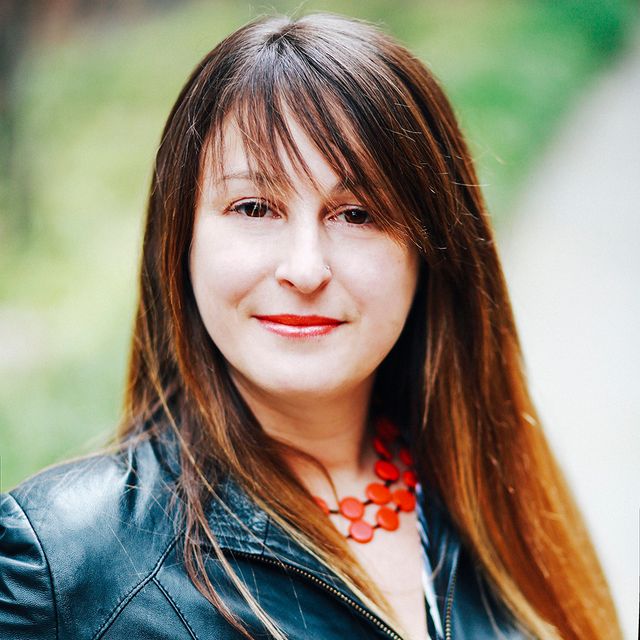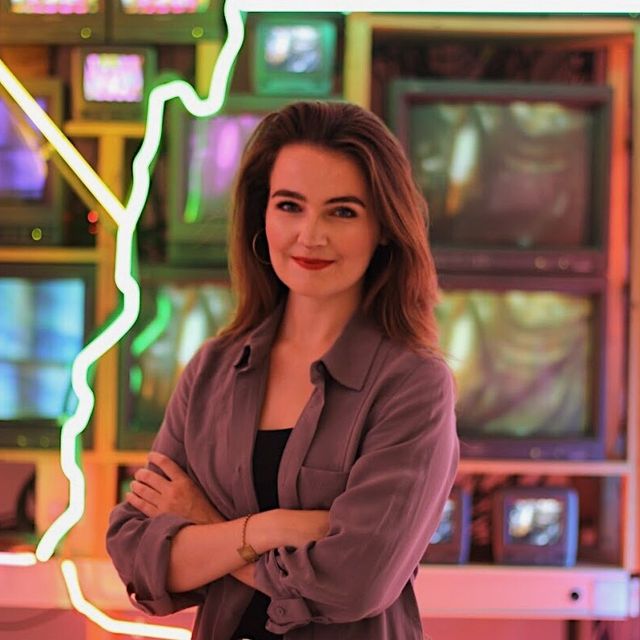
On Sunday, December 8 from 1 to 3 p.m., the Luce Foundation Center kicks off its winter season of Beyond the Studio Workshops with a lesson in plant-mounting and care with Rock Paper Plant. Jessica McFadden, the Luce Foundation Center's Program Specialist, reached out to the women behind Rock Paper Plant, Alicia Mazzara and Cielo Contreras, to learn a bit more about their experience as creative business owners in DC.
Can you tell us a bit about Rock Paper Plant? What was it like to found and build your own business?
Rock Paper Plant came about in the fall of 2017 when Alicia had run out of windowsill space for her rapidly growing orchid collection. She learned how to mount plants and, from there, Rock Paper Plant was born! We make botanical creations, teach DIY workshops across the DC area and sell our creations at different collectives and on our website.
Our two main mediums are epiphytic plants, like orchids, and fiber. Epiphytes are plants that naturally grow on trees so we mimic that environment by mounting them on cork bark to create what we call a “living wall hanging.” For the plant-challenged, we also have needle-felted succulents made out of wool.
Even though running this business is very different from what we do day-to-day—Alicia works at a think-tank doing research on affordable housing, and Cielo is a fundraiser at a children’s literacy non-profit—there are some transferable skills: project management, communications, using spreadsheets effectively (!), event planning, relationship-building, and sales (aka fundraising). The best part has been the people we get to work with. It brings us so much joy to see the pride that our workshop participants have when they complete their projects. Every single class has at least one person who is really skeptical about their ability to make something beautiful with their hands and every time, they end up with something great. It’s fun to create and make new things, but what we enjoy most is building community.
What’s your experience in the DC creative community been like? Is there anyone that you’ve had the opportunity to work or collaborate within DC that you’re excited about?
It’s been pretty great! DC is not a big place, and the creative community is even smaller, but it’s so welcoming. If you have an idea or want to make something, there’s a place for you. We got our start teaching workshops at The Lemon Collective, and we owe a lot of our success to the team there. It’s where we met Lily Cox who now co-owns REWILD DC where you can buy some of our products and/or take our workshops.
This year, we joined Femme Fatale DC (FFDC), which has opened us up to a whole new world of local makers. FFDC has also helped us build some of those practical business skills with workshops and connections to companies like Little Fish Accounting, CollabCreate DC, and The Patrice Effect. We met Emily Rice of Lovers Plant Studio via Instagram and have collaborated with her in various ways too. Rock Paper Plant is here thanks to a whole community of awesome women entrepreneurs.
In what ways would you like to see DC change, moving forward?
There are a lot of pop-ups and craft markets here, but it would be nice to see more permanent spaces like Steadfast Supply and Shop Made in DC. We’re definitely moving in that direction, but we’d like to see more of it. It would also be great if there could be more co-working spaces for creatives, especially with studio and storage space. The cost of living in this area makes it difficult to have a vibrant creative economy because the cost of renting studio or retail space in addition to the cost of renting your own home, is just so high. Our day jobs are focused on social justice, and a more affordable DC would have a wide range of benefits for its residents.
Are there any challenges you’ve faced as an artist, creative, or maker in DC (or in general)? If so, how have you faced said challenge?
One of our biggest challenges is how other people value/undervalue your work. It’s hard for handmade items to compete with mass-produced goods. We’ve both always loved going to craft fairs and seeing stuff that’s made by local makers, but sometimes we’d see something handmade and balk at the price.
Now that we’re on the other side, we have so much empathy because we understand everything that goes into one item. We now make it a point to shop local and shop small whenever we can and make room in our personal budgets for it. We’re also starting to make time to take other local maker’s workshops to continue to keep our own creativity flowing and support fellow creative entrepreneurs. We’re always trying to learn so that we can be better teachers, business owners, and partners.
What advice would you give to someone that wanted to pursue a creative career?
- Ask for help. There’s such a wide network of resources to help you succeed.
- Look at what other creatives are doing. This includes those who do similar things and those who do completely different things. Support their workshops, products, events, etc. There’s always something to learn, and there may be interesting opportunities to collaborate!
- If you’re going to set up an official business (we’re an LLC), get yourself an accountant and maybe a lawyer from the beginning if you can. We could have saved a lot of time if we had found someone to guide us through all of the rules and bureaucracy.
- Pay your vendors and partners, and pay them on time. No one likes having to tell someone that they owe them money.
Bonus Question! Your website says: “We're non-profit unicorns by day and makers and teachers on nights and weekends. We firmly believe that everyone can benefit from tapping into their creative side. We also believe in the power of plants and that bringing the outdoors in makes everyone happier and healthier.”
How do you maintain a balance between your work, your life, and your creative endeavors?
It’s a challenge, and we can’t say we do it super well all the time. We’re both lucky to have a solid support system behind us. It helps that there are two of us, and that we’re friends who can work well together. If one of us is having a busier week at our day job, the other one of us will pick up some of the slack. We also try to use our time efficiently. For example, while one of us is teaching a workshop, the other will be sitting on the side answering emails or updating the website in between helping students or fetching extra supplies.
Do you think plants can help people maintain that balance?
Plants are a great form of self-care! They clean the air and provide you with something beautiful and soothing to look at. Caring for your plants can also be very meditative. Between our two homes—a combined 1,100 square feet or so—we have about 100 houseplants. Watering can take a while, but it’s a nice opportunity to look at each plant and just focus on another living thing for a little bit. Plants teach you to be patient and observant, two qualities we often lose in this very fast-moving, screen-filled world.
To learn more about Alicia, Cielo, and Rock Paper Plant's website or follow them on Instagram at @rockpaperplant. Be sure to join us for Beyond the Studio Workshop with Rock Paper Plant on Sunday, December 8 from 1– 3 p.m. in the MacMillan Education Center! Tickets available now. Don’t miss the rest of our Beyond the Studio Workshops later this winter, featuring artists from Shop Made in DC and Capitol Hill Arts Workshop.














